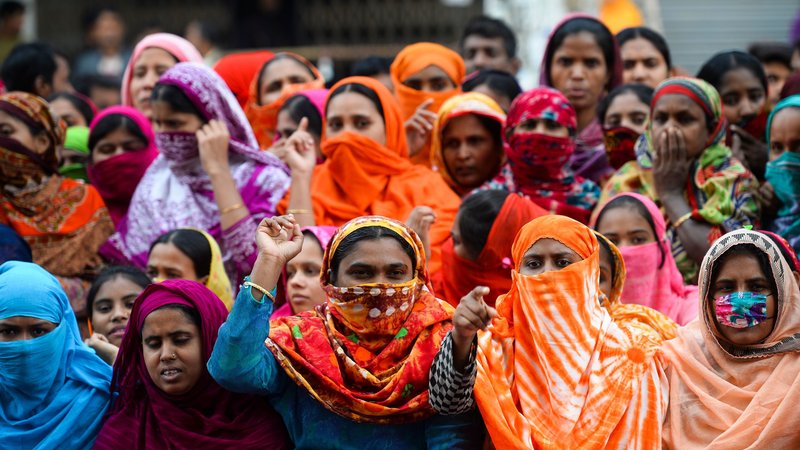As many as 50,000 garment workers walked out of 4,500 factories in Bangladesh earlier this week, declaring that “we won’t leave the road until our demands are met”. As many as four million workers of textile and clothing factories across the country have been demanding better wages. On January 8, a worker was killed and nearly 50 injured after police fired rubber bullets and tear gas canisters at protesters.
Workers, including those working in factories producing goods for international brands such as H&M, Walmart, Tesco, Cerrefour and Aldi, took to the streets from January 6, demanding that their monthly salary be doubled from 8,000 Tk to 16,000 Tk ($191 per month).
In addition to tear gas canisters and rubber bullets, police also used water cannons to disperse some 10,000 workers who had blocked the highway at several places near Savar on the outskirts of Dhaka. For several hours, thousands of workers gathered outside their factories. In northern Kalshi, similarly, thousands more took to streets to press for their demands.
Earlier in September, Mujibul Haque, the minister for labor, had declared that the government would fix the minimum wage in December, “with the issue of a gazette notification”. However, workers said the government’s 51% increase in the monthly minimum wage had not benefited them. “The pay increase is too low. It does not even meet the cost of rising prices,” they said.
Bangladesh’s textile industry is the second largest in the world after China, with exports valued at almost $30 billion last year. On the one hand, the industry has seen rapid expansion while on the other, the workers have been finding it difficult to make ends meet.
Jenny Holdcroft, assistant general secretary of IndustriAll Global Union, condemned the use of force against the workers. “The anger (within) the garment workers over wage disparities highlights the urgent need for industry bargaining to enable unions to negotiate fair wage outcome for all workers,” she said.
Almost 85% of the workforce in the textile industry comprises women, who work in the absence of basic amenities and without the proper enforcement of laws granting maternity leave and benefits. The 2013 Rana Plaza factory collapse, one of the worst industrial accidents in the country, saw the deaths of 1,134 people and over 2,500 injuries.
Garment workers had also protested in 2016 over salary hikes but were met with severe repression from the State, ending in over 1,500 workers losing their jobs for participating in the demonstrations.





